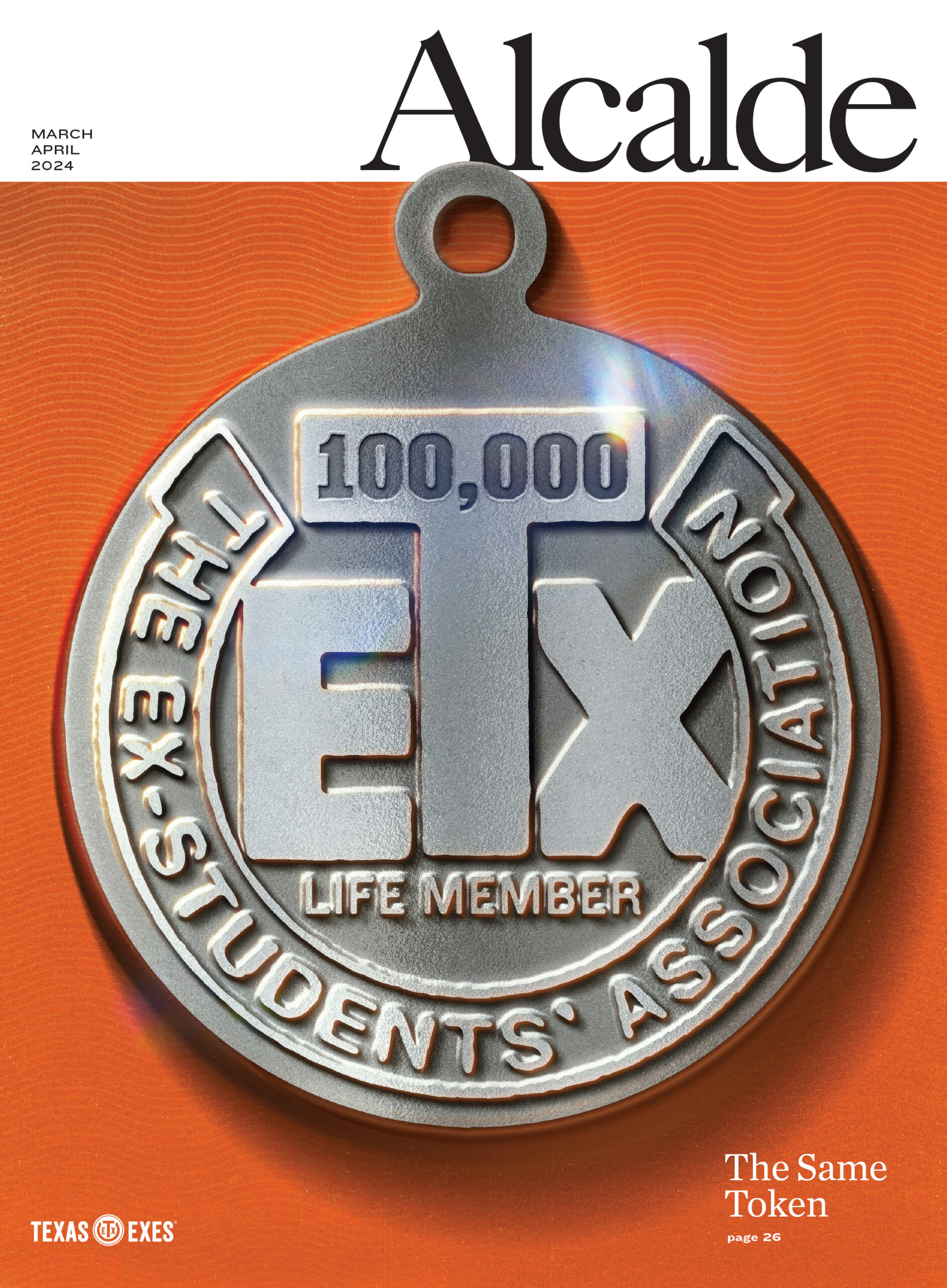What Higher Ed Critics Don’t See: A UT Professor’s Perspective
Randolph Lewis is an associate professor of American studies. His piece first ran in Inside Higher Ed.
The assault on higher education in Texas has been painful in recent months. Mysterious organizations with deep pockets have been pushing “breakthrough solutions” with little sense of the realities of higher education. Why do these people want to mess with Texas’s best universities? What kind of political game are they playing?
I look at my colleagues at the University of Texas at Austin and see hard-working, student-centered, idealistic people who are contributing to the quality of life in Texas. No different than faculty at Texas A&M or other state universities, we are proud of what we do.
Yet we’re under fire, forced to justify our existence to a grim assortment of the dim, the lost, and the self-interested. Yes, we realize that the attack is coming from a toxic blend of ignorance and ideology. It’s often coming from people who don’t know the difference between a teaching assistant and an assistant professor, who don’t understand how research and teaching are interdependent, and who cynically want to make room for their own for-profit colleges and online schemes. To many of our critics, an education is a fungible asset that boils down to dollars and cents and nothing else.
It’s an absurd position—but that doesn’t mean we’re immune to their criticism. The sad truth is that it’s undermining our morale as well as the public perception of what we do. Let me give some examples of the claims that have been made about institutions like UT, each one tearing down our mission and our morale with falsehoods and distortions.
Not invested in our students? Apparently, the attack dogs have never spent much time with faculty members. If they did, they would see a high level of student interaction among tenured, tenure-track, and adjunct faculty alike. They claim our commitment to students is measured only by hours in formal class time. While our detractors imagine us frittering our days away with tea and crumpets, they fail to appreciate how our lives are freighted with hundreds of hours of invisible labor each semester: the long hours on scholarship committees; the late night e-mails from students needing an immediate response; the endless stacks of papers to grade; the extra meetings with students that spill out of office hours. Day after day, we are doing the little things that allow undergraduates to flourish in the world after UT. Our task is daunting but meaningful: we are teaching young people how to research, analyze, write, present, and innovate in ways that enrich individual lives as well as communities.
Faculty not working hard enough? We cringe when we hear that our productivity should be measured with a simplistic formula, one that would never be applied to lawyers, doctors, or legislators. We listen to claims that we’re neglecting our students because we’re too focused on research—or, paradoxically, that we’re not doing enough research. Somehow our critics think we’re only working when we’re physically in the classroom, which is akin to saying lawyers only work when they’re in the courtroom. All I can say is this: Being a professor is a great but exhausting job in 2011. The combination of student demands, research pressure, and service expectations creates a hectic workday that is never really over, not even late at night or on the weekend. In other words, it’s like most jobs in the frantic post-industrial economy.
Putting research over teaching? Sorry, wrong again. One of the key figures in the attack on UT is oil-executive Jeff Sandefer, who claims that UT hires top researchers without regard for classroom effectiveness. “They’re willing to trade off quite a bit in teaching quality for that research,” he was quoted as saying in the Texas Tribune. “Whether the new people are good or not is beside the point.” The reality is that good teaching is almost never “beside the point,” not even in the “publish or perish” culture of a research university. Professors who are not naturals at the podium are pushed into remediation—if they do not arrive as strong teachers, they receive assigned mentors, special training, and peer pressure from faculty who expect excellence in research and teaching alike.
The need for greater transparency. If you want to feel naked to the world, try teaching at a public university—not much is kept under wraps. Your salary, your syllabi, your publications, even whether you are “hot or not” is posted on the Web (the last on sites like RateMyProfessor.com). If you want to feel secure behind a wall of lawyers and feudal privilege, try working at a corporation or perhaps in the governor’s mansion. (Or check out the website of the group behind much of the criticism—the Texas Public Policy Foundation—and try to figure out who is really funding their campaign against Texas’s universities).
A greater reliance on student evaluations will result in a better education. Unfortunately, turning education into a popularity contest is not the answer. For years universities have expanded their assessment programs to fit a more corporate model. What have we learned from this vision of students as “consumers”? That they don’t like it when historians “talk about lynching.” That they favor female professors who “look sexy” in particular outfits. That they don’t like “reading books that are hard.” (All actual comments that my peers have received). Of course, student evaluations can sometimes be useful—but only to a point, one that gets overlooked in the mania for “market based solutions.” Sadly, our market-minded critics won’t be satisfied until we put instant polling in the classroom, so we can see what ideas are “selling” without waiting for end-of-semester evaluations. Driven by market imperatives, commercial radio has moved in this direction—why not let “edu-consumers” shape the curriculum with instant feedback?
Because it doesn’t work. We know that evaluations soar when students are presented with information that confirms what they already know—just as evaluations go down when students are challenged to confront new ideas. In other words, in a “market driven” classroom, critical thinking and real innovation wouldn’t “sell,” while comforting mythologies would be rewarded with high evaluations linked to compensation. Consider Presidential candidate Michele Bachmann’s absurd claim that the Founding Fathers eliminated slavery — many students would be pleased to hear such a comforting vision of our national origins. But wouldn’t you prefer to learn the hard truth? Wouldn’t that result in an informed citizenry able to make wise choices? Academe is one of the few places where we can choose hard knowledge over self-indulgent fantasies without being penalized.
Despite the attacks on our mission, our budgets, and our morale, I still believe that places like UT are extraordinary. In a state that has not always made a strong investment in education, UT has become one of the top public universities in the United States and as well as a powerful cultural resource. Speaking only for myself as a faculty member and an alumnus, I would offer a simple message to the attack dogs: don’t mess with Texas higher education. If you have a useful solution to a real problem, then let’s talk. We are an idealistic bunch eager to find a better way forward. There is always room for improvement. But don’t come at us half-cocked, distorting who we are and what we do. The people of Texas deserve better.


















14 Comments